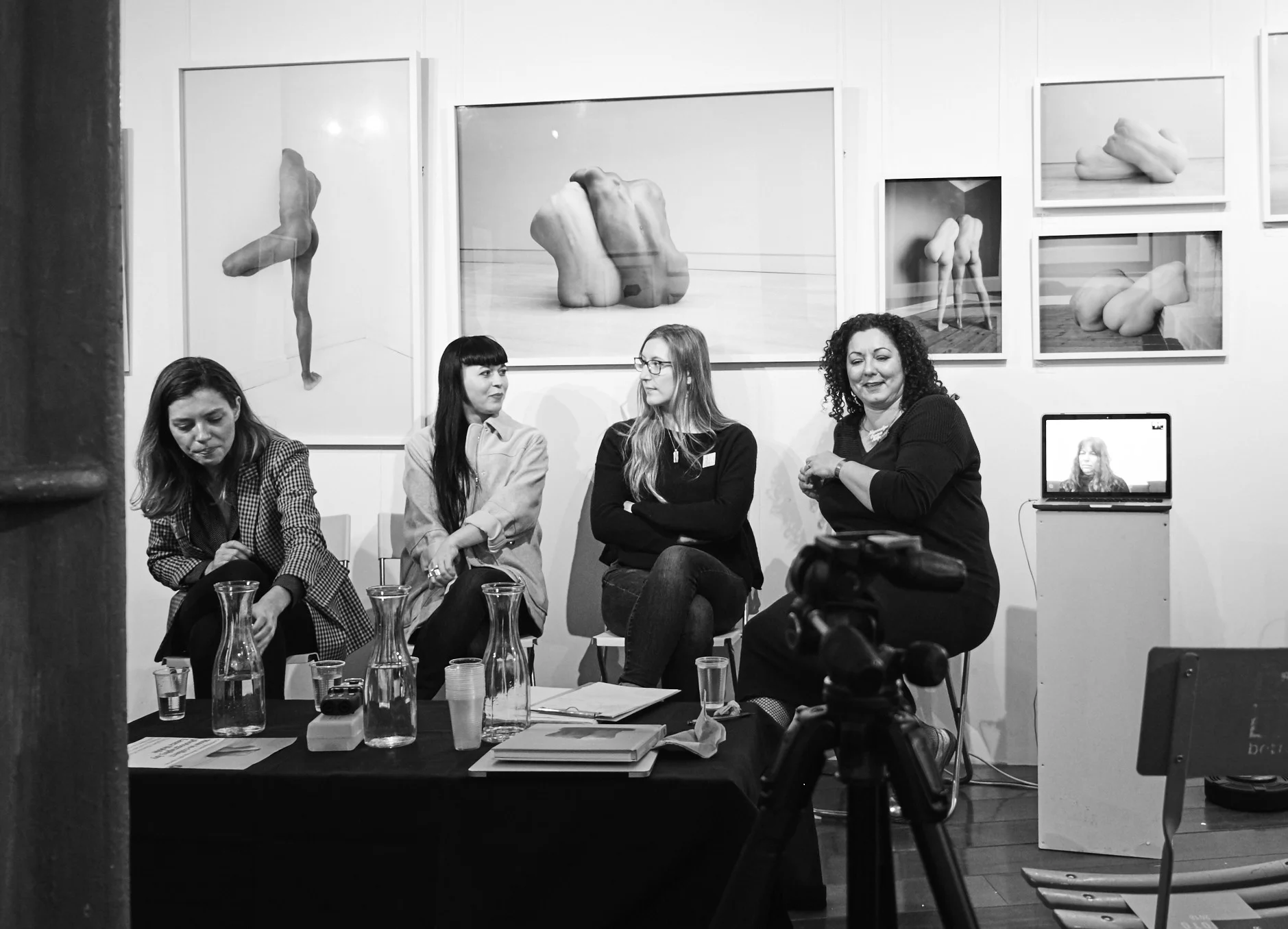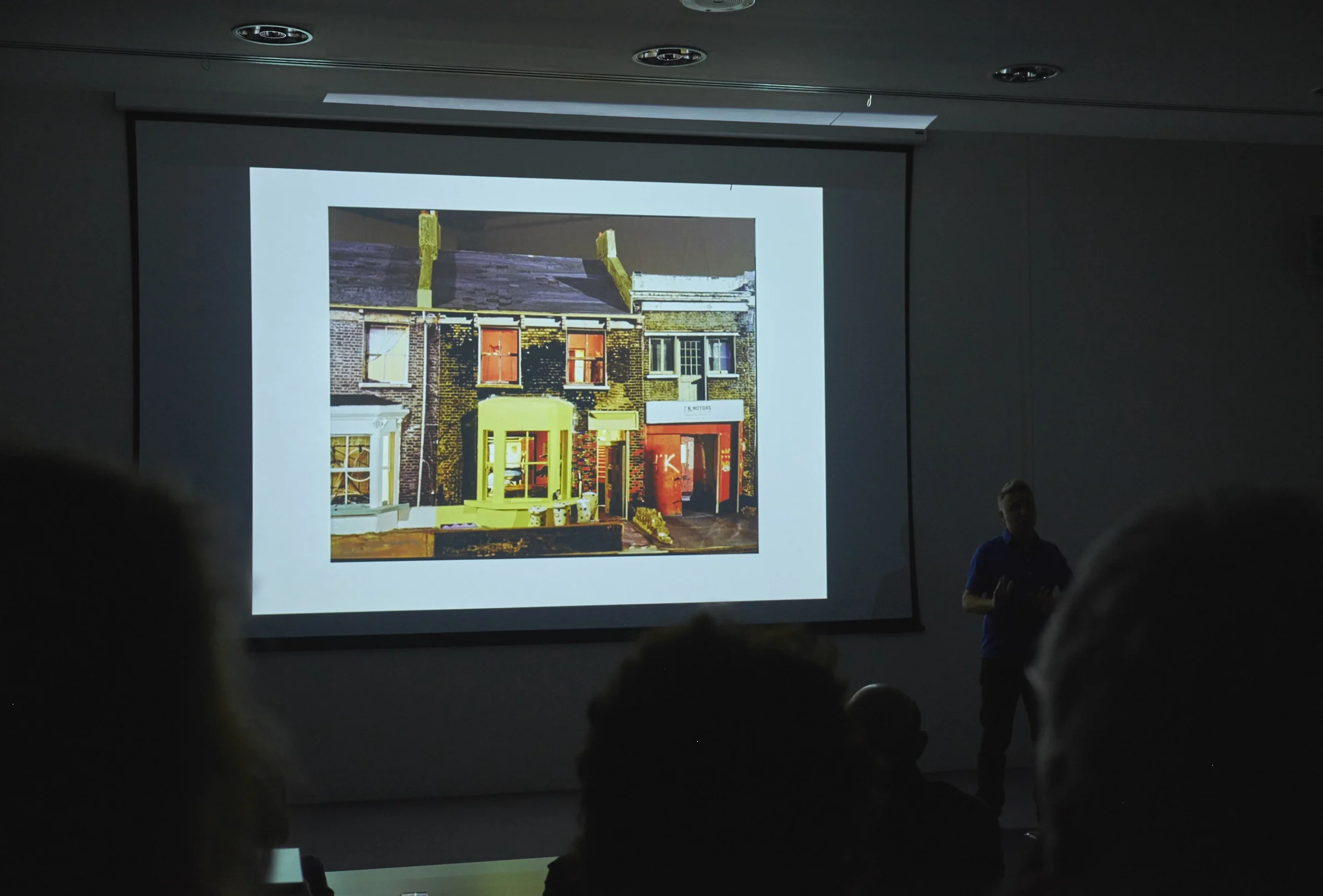Sex in Photography
At the end of November I attended a Symposium: Women FIX Photography, a panel discussion and networking event as part of FIX Photo 2018 run by Laura Noble, writer and gallerist.
A rather startling statistic was put forward during Laura’s introduction that although 85% of students studying photography are women, the industry switches that figure on its head, and is made up of just 15% of females. That doesn’t make a whole lot of sense.
This year marks 100 years since women got the (partial) vote in the UK. Del Barrett, Vice President of the Royal Photographic Society has spear-headed 100 Heroines this year, compiling a list of 100 influential female photographers from across the globe who are transforming photography today. Also, last week saw the launch of the 209 women project, where the 209 Female MP’s were photographed by 209 female photographers.
This, I am sure is all vital work.
I have found it hard to compile this blog, despite knowing there is something to be said. I asked my 18 year old son (who I understand to be a feminist) to read my unfinished words, and that got us into a deep discussion about women and the easy adoption of stereotypes. I will round up what he said at the end.
Symposium: Women FIX Photography. In the room:
Visible (l-r) Victoria from Christie’s Auction room
Rhiannon Adam, Artist
Chloe Rosser, whose work Form and Function you can see on the walls
Laura Noble, Organiser
Not visible:
Del Barrett, Vice President of the RPS and founder of @100heroines
Karen Harvey, director of Shutter Hub
Renee Jacobs, Photo de Femmes, was skyped live from Florida when the floor was opened up for discussion!
I am a woman, and I was once a girl. I’ve been working in the photographic industry for all of my adult life, working as an assistant for many years in the advertising & editorial sectors, and building up to a freelance practitioner. Within that time I have become a mother, and along with his Dad, raised a child.
Everyone I worked for regularly as a Photographer’s assistant was a man. For years, I barely saw women working in photographic labs and all the couriers I can picture were men - for those who are too young to remember, London was once awash with couriers on bicycles transporting rolls of film, in various states across the city; to studios, labs, and clients in offices. They would gather at a roadside cafe, much like the way Deliveroo workers do now. I don’t recall ever seeing a female courier.
Another factor in any debate about the history of photography and who works/worked in it, is one of privilege. Without a doubt, when I was starting out, those with money or creative parents were at an advantage. Nowadays there are millions of photos taken every minute on smartphones, but the industry still relies heavily on expensive equipment and/or processing techniques to produce most of the work that is accepted by publications and galleries.
Apart from one panel member, I did not know any of the women very well. The photographic industry is huge, and depending on what you photograph and for whom, you’ll only know a certain number of people. I feel that the industry has become a friendlier place overall since the onset of digital, because it has become far more democratic, and you hear the word collaboration a lot more than was ever the case; when people clung onto clients and were very secretive about commissions.
The day before attending FIX Photo festival I had been to a talk given by award winning photographer, and thoroughly nice chap Tom Hunter at The Cass, London Metropolitan University. Tom talked about his illustrious career, which is still going strong.
As I sat in awe, listening to him regale his entry into photographic notoriety, it didn’t really cross my mind that Tom’s approach would most likely have been easier as a young, testosterone fuelled man. He was not scared to confront authority, or push his way into a situation to get the results he wanted.
Of course we could turn to the work of Nan Goldin to see a woman taking pictures in places that many people wouldn’t dare to tread. There have been, and always will be, exceptions to the case, but maybe we shouldn’t pluck these individuals out, as if to say ‘see, what are you worried about? etc. etc.’ It seems that sometimes the stereotypical character traits we align with either sex are so ingrained they do not get noticed. Maybe this is the point: we do need to talk, to sound this stuff out, so we can understand how we are where we are?
You can see why I had so much trouble articulating anything here. Once you start to debate a problem, it spreads into many tributaries, and everyone has their own experience of being a woman, or man: basing their findings on their own experience and knowledge base.
Tom Hunter talking about his degree project ‘The Ghetto’ when he made a complete model of the street he lived on as a squatting tenant. The Ghetto title was inspired by an article printed in the Hackney Gazette, giving a scathing report on the alternative community Tom knew and loved. His photographs and model formed part of a campaign to save the community from developers and Hackney Council. It was saved, and Tom still lives in the neighbourhood today.
At FIX, the fifty-strong audience consisted of two men. When the conversation turned to that of motherhood, one of the men, I believe Norwegian, said we would never be having this conversation in Norway because maternity/paternity rights are much more even. The mention of motherhood was like a touch-light in the room, with several women sharing their experiences.
For me, I do believe that the single most-effecting element of why I might feel in any way disadvantaged as a woman in the photographic industry is through becoming a mother. This, I know is a feeling shared by women doing all kinds of jobs, but as a creative freelance professional, there are many obstacles, both physical (meaning logistics rather than carrying equipment) and mental to deal with.
Talking of mothers, this is what my son pretty much said The thing about some of these movements (#metoo was mentioned) is that they breed polarisation. He is certainly affronted by the idea that men are often presumed to be ‘the enemy’, and I fully get his position.
These are shared issues, and ones to discuss together. Even in these times of shifting identities men will still be our fathers, our lovers and our sons.
There is more to being a woman, than being a woman. Amanda Eatwell
FIX 2018
PS. Within the time I wrote this, I read an interview between Jane Graham (Big Issue) and Stella Rimington, Ex MI5 Chief. Asked which day of her life she would relive if possible she said the day she met members of the KGB. She was the only woman at the table, and during the concluding speech one of them said ‘“In your country you have a woman Prime Minister, you have a lady Queen, and now we have a woman leading your intelligence service”. She said “there was a sense of ‘you must be mad’.”
But still, she was there, and women should always be there, here, everywhere.



